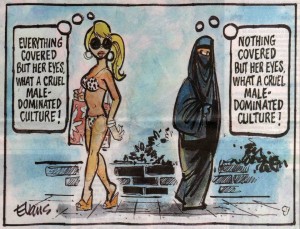We are all so different and perhaps it is our differences that should really unite us. The fact that we are all diverse should bring us together instead of pushing us apart. It’s usually our sameness that brings people together because there is comfort, understanding and safety there. But the fact that we are all unique is a sort of a similarity, isn’t it? The fact that no one can look the exact same and have the exact same experiences and the exact same background and the exact same trajectory should open the gateway for empathy.
However, even when looking for differences I’ve found that I’m often looking for differences outside of myself, not in me. Such as, in High School I wasn’t necessarily looking for people that challenged aspects of myself, I was looking for people that challenged the exterior structure. I bonded with people very different from myself in many ways because we still shared something. We were all discontent with the institutions we were in (school, religion, family…).
I think it is so easy to label people as “others” because we feel comfortable with the familiar and hold onto things, which establish and support what we see as “right” and “normal” in ourselves. People generally don’t seek out perspectives that challenge their views, but support them. Which I think is pretty sad. Where is the growth in that? Where is the evolution of the mind and thought?
I may encourage us to break out of this status quo, but I am definitely not exempt from it. Looking at my media and news intake, it is fairly clear what my political and social inclinations are. I choose my sources and topics based on what is most important to me. (So, a lot of stuff on feminism, equality, fairness, social justice, cultural awareness…). I am not usually reading things by authors who, in my opinion, are ignorant or who purport things that I consider wrong. But in doing so I am limiting my own dialogue. I am not learning to deconstruct other people’s arguments or to reevaluate my own. I find that I am dismissing their words instead of challenging them. By doing this I am keeping myself in a separate bubble and compartmentalizing.
Because of that when I write I end up not speaking to the people who I really want to affect, the people I think need to change their minds. Instead I am just talking to the people I already have an affinity with, the people who already agree (at least partially) with what I am saying. That is definitely a weakness.
This is something that is a huge problem in US politics today. How I see it is that there aren’t feminist Republicans because the whole political scene is an extreme bipartisan split with the whole mindset of “Us vs. Them” instead of actually being able to have an intelligent conversation and then compromise. The two parties have become caricatures of what they stand for (which makes them even more disconnected from the needs of their constituents and pretty useless). People often seem to see other people’s political views, or even basic needs, as threatening their own. So you have this strange combative fight for survival when it isn’t even necessary. There are female republicans but they all seem to hate feminism and feminist liberals who all seem to think republican females are hypocrites in terms of choice, healthcare, and opportunities. Of course, that is a very simplistic way of putting it, but it shows how these politicians are being exaggerated representations. That is something we really don’t need—particularly when it comes to our legislature.
It’s this whole thing of erasing people with whom you disagree. If you dismiss people’s ideas and what they stand for, you are dismissing them. If you never learn about the struggles of others then, in your mind, they do not exist. Think of it as if you are ignoring what is going on in the rest of the world. You are not going to run straight smack into it because you have that privilege, so you will never be forced to acknowledge it. Or, like people who say that they don’t “see color,” it is both trivializing a current issue and erasing the identity of others.
I’m not saying anything new here. It’s all about empathy and education, as I’ve already gone on about in my last post (and will continue to in the future). I will just end here with this excerpt from Zara Bennett in Dear Feminists: I’m One of You! Please Don’t Save Me discussing ignorance and dismissal and how it directly affects global feminism:
“Excluding a feminist or denying her feminist identity on the basis of her cultural affiliations is akin to rejecting the idea that a man can be a feminist. It creates divides that shouldn’t exist because the key role feminism plays in our lives is one of intersectionality; no two people share exactly the same experiences, and it is these distinctions that allow us to identify problems within our social institutions. These very same distinctions also help us find solutions to those problems, so instead of arguing over whose view is best, we should instead be focusing on how various perspectives can be used to further our understanding of oppressive constructs in our different societies.
Women from non-Western cultures do not need to be saved. When I go out wearing shalwar kameez, it is not a cry for help; it’s just as self-expressive as blue hair or a tongue piercing. It is a statement that I am proud of where I come from. I do not have to compromise my feminist identity with my cultural affiliations. If we could all just talk to and educate one another before assuming that different perspectives are automatically conflicting, I believe we would open a lot more doors for one another.”

